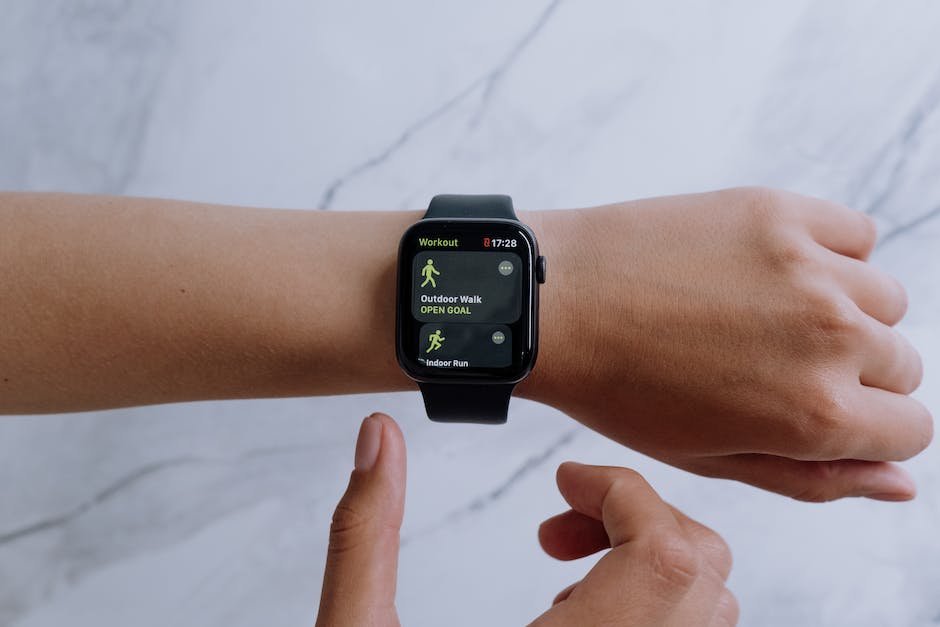Table of Contents
- Introduction
- The Impact of Artificial Intelligence on Healthcare Leadership in 2023
- Leveraging Big Data Analytics for Effective Healthcare Leadership in 2023
- The Role of Telemedicine in Transforming Healthcare Leadership in 2023
- Embracing Blockchain Technology for Secure and Efficient Healthcare Leadership in 2023
- Q&A
- Conclusion
“Embracing the Future: Leading with Digital Health Trends in 2023”
Introduction
Digital health trends are rapidly transforming the healthcare industry, and their impact on leadership cannot be overlooked. As we look ahead to 2023, it is evident that these trends will continue to shape and influence the way leaders operate within the healthcare sector. From the adoption of telemedicine and wearable devices to the use of artificial intelligence and data analytics, digital health is revolutionizing the way healthcare organizations are managed and led. In this article, we will explore how these digital health trends are influencing leadership in 2023 and the implications they have for healthcare leaders.
The Impact of Artificial Intelligence on Healthcare Leadership in 2023

The healthcare industry is constantly evolving, and one of the major factors driving this change is the rapid advancement of digital health technologies. In particular, artificial intelligence (AI) has emerged as a game-changer in healthcare, with the potential to revolutionize the way healthcare leaders operate in 2023 and beyond.
AI has already made significant inroads in various aspects of healthcare, from diagnosis and treatment to administrative tasks and patient care. With the ability to analyze vast amounts of data and identify patterns that humans may miss, AI has the potential to improve the accuracy and efficiency of healthcare delivery. This, in turn, has a profound impact on healthcare leadership.
One of the key ways AI is influencing healthcare leadership is by enabling more data-driven decision-making. Traditionally, healthcare leaders have relied on their experience and intuition to make decisions. However, with the advent of AI, leaders now have access to a wealth of data that can inform their decision-making process. AI algorithms can analyze patient data, clinical trials, and research papers to provide insights that can help leaders make more informed decisions about patient care, resource allocation, and strategic planning.
Another way AI is impacting healthcare leadership is by automating routine administrative tasks. In the past, healthcare leaders have spent a significant amount of time on paperwork, scheduling, and other administrative duties. With AI, these tasks can be automated, freeing up leaders to focus on more strategic and value-added activities. This not only improves efficiency but also allows leaders to devote more time and energy to driving innovation and improving patient outcomes.
AI is also transforming the way healthcare leaders interact with their teams. With AI-powered chatbots and virtual assistants, leaders can communicate with their teams more effectively and efficiently. These tools can provide real-time updates, answer questions, and even offer suggestions based on data analysis. This not only improves communication but also fosters a more collaborative and inclusive work environment.
Furthermore, AI has the potential to enhance leadership development in healthcare. AI algorithms can analyze leadership traits and behaviors, identify areas for improvement, and provide personalized feedback and coaching. This can help leaders develop their skills and become more effective in their roles. Additionally, AI can assist in identifying emerging leaders within an organization, helping to nurture and develop talent for future leadership positions.
However, while AI offers immense potential, it also presents challenges for healthcare leaders. One of the main concerns is the ethical use of AI in healthcare. Leaders must ensure that AI algorithms are unbiased, transparent, and accountable. They must also address concerns about data privacy and security to maintain patient trust.
In conclusion, AI is revolutionizing healthcare leadership in 2023 and beyond. It enables data-driven decision-making, automates administrative tasks, improves communication, and enhances leadership development. However, leaders must navigate the ethical challenges associated with AI to ensure its responsible and effective use in healthcare. As the digital health landscape continues to evolve, healthcare leaders must embrace AI as a powerful tool to drive innovation, improve patient outcomes, and shape the future of healthcare.
Leveraging Big Data Analytics for Effective Healthcare Leadership in 2023
Leveraging Big Data Analytics for Effective Healthcare Leadership in 2023
In recent years, the healthcare industry has witnessed a significant transformation due to advancements in technology. One of the most notable changes is the increasing use of digital health trends, which are revolutionizing the way healthcare leaders operate. Among these trends, big data analytics has emerged as a powerful tool for effective healthcare leadership in 2023.
Big data analytics refers to the process of collecting, analyzing, and interpreting large volumes of data to uncover patterns, trends, and insights. In the healthcare sector, this data can come from various sources, including electronic health records, wearable devices, and social media platforms. By harnessing the power of big data analytics, healthcare leaders can make informed decisions, improve patient outcomes, and optimize resource allocation.
One of the key benefits of big data analytics in healthcare leadership is the ability to identify and predict disease outbreaks. By analyzing vast amounts of data, healthcare leaders can detect patterns and trends that may indicate the emergence of a disease outbreak. This information can then be used to allocate resources, develop targeted prevention strategies, and ensure timely interventions. In 2023, healthcare leaders will rely on big data analytics to proactively address public health challenges and protect the well-being of their communities.
Furthermore, big data analytics can also enhance patient care and improve clinical outcomes. By analyzing patient data, healthcare leaders can identify high-risk individuals, predict disease progression, and personalize treatment plans. This level of precision medicine can lead to better patient outcomes, reduced healthcare costs, and improved patient satisfaction. In 2023, healthcare leaders will leverage big data analytics to provide patient-centered care and drive positive health outcomes.
In addition to improving patient care, big data analytics can also optimize resource allocation in healthcare organizations. By analyzing data on patient flow, resource utilization, and operational efficiency, healthcare leaders can identify areas of improvement and implement targeted interventions. This can result in cost savings, reduced wait times, and increased patient access to care. In 2023, healthcare leaders will rely on big data analytics to streamline operations, enhance resource allocation, and improve overall organizational performance.
However, leveraging big data analytics for effective healthcare leadership in 2023 comes with its own set of challenges. One of the main obstacles is ensuring data privacy and security. With the increasing amount of sensitive patient information being collected and analyzed, healthcare leaders must prioritize data protection to maintain patient trust and comply with regulatory requirements. Additionally, healthcare leaders must also invest in the necessary infrastructure, technologies, and skilled personnel to effectively collect, analyze, and interpret big data.
In conclusion, big data analytics is revolutionizing healthcare leadership in 2023. By harnessing the power of big data, healthcare leaders can make informed decisions, improve patient outcomes, and optimize resource allocation. However, to fully leverage the potential of big data analytics, healthcare leaders must address challenges related to data privacy, security, and infrastructure. With the right strategies and investments, healthcare leaders can navigate the digital health landscape and drive positive change in the industry.
The Role of Telemedicine in Transforming Healthcare Leadership in 2023
The healthcare industry has been undergoing a significant transformation in recent years, with the advent of digital health technologies playing a crucial role in this evolution. One area where these technologies have had a profound impact is in the realm of leadership within the healthcare sector. In particular, telemedicine has emerged as a game-changer, revolutionizing the way healthcare leaders operate and make decisions.
Telemedicine, the use of telecommunications technology to provide remote healthcare services, has gained significant traction in recent years. This trend is expected to continue and even accelerate in 2023. The COVID-19 pandemic has further accelerated the adoption of telemedicine, as it offers a safe and convenient way for patients to receive care without the need for in-person visits. As a result, healthcare leaders have had to adapt their leadership styles to effectively leverage telemedicine and its associated technologies.
One of the key ways in which telemedicine is transforming healthcare leadership is by enabling leaders to provide care remotely. In the past, healthcare leaders were often confined to their offices or hospitals, limiting their ability to reach patients in remote or underserved areas. However, with telemedicine, leaders can now connect with patients virtually, regardless of their location. This has not only expanded access to care but has also allowed leaders to have a more direct and personal impact on patient outcomes.
Furthermore, telemedicine has also facilitated greater collaboration and communication among healthcare leaders. In the past, leaders would often have to rely on face-to-face meetings or phone calls to discuss important matters. However, with telemedicine, leaders can now connect with their colleagues and teams through video conferencing and other digital platforms. This has not only improved the efficiency of communication but has also fostered a more collaborative and inclusive leadership culture.
Another way in which telemedicine is influencing healthcare leadership is by enabling leaders to leverage data and analytics to make more informed decisions. With the increasing digitization of healthcare records and the proliferation of wearable devices, leaders now have access to a wealth of data that can be used to drive insights and inform decision-making. By analyzing this data, leaders can identify trends, predict patient needs, and allocate resources more effectively. This data-driven approach to leadership has the potential to significantly improve patient outcomes and drive operational efficiencies.
However, with the increased reliance on telemedicine, healthcare leaders also face new challenges. One of the key challenges is ensuring the security and privacy of patient data. As telemedicine involves the transmission of sensitive patient information over digital networks, leaders must implement robust cybersecurity measures to protect patient privacy. Additionally, leaders must also ensure that healthcare providers are adequately trained in the use of telemedicine technologies to deliver high-quality care.
In conclusion, telemedicine is transforming healthcare leadership in 2023 by enabling leaders to provide care remotely, fostering collaboration and communication, and leveraging data and analytics to make informed decisions. While this trend offers numerous benefits, leaders must also address the challenges associated with telemedicine, such as data security and provider training. By embracing these digital health trends, healthcare leaders can drive positive change and improve patient outcomes in the years to come.
Embracing Blockchain Technology for Secure and Efficient Healthcare Leadership in 2023
In recent years, digital health trends have been transforming the healthcare industry in numerous ways. From telemedicine to wearable devices, technology has revolutionized the way healthcare is delivered and managed. One particular trend that is gaining traction and influencing leadership in 2023 is the embrace of blockchain technology for secure and efficient healthcare leadership.
Blockchain technology, originally developed for cryptocurrencies like Bitcoin, is a decentralized and distributed ledger system that allows for secure and transparent transactions. Its potential applications in healthcare are vast, and many industry leaders are recognizing its benefits. By leveraging blockchain technology, healthcare organizations can enhance data security, streamline administrative processes, and improve patient outcomes.
One of the key advantages of blockchain technology in healthcare leadership is its ability to enhance data security. With the increasing digitization of patient records and the growing threat of cyberattacks, ensuring the privacy and integrity of sensitive health information is of paramount importance. Blockchain technology provides a secure and tamper-proof platform for storing and sharing patient data. Each transaction is recorded in a block, which is then linked to previous blocks, creating an immutable chain of information. This decentralized nature of blockchain makes it extremely difficult for hackers to manipulate or compromise the data, thus safeguarding patient privacy.
In addition to data security, blockchain technology can also streamline administrative processes, leading to more efficient healthcare leadership. Currently, healthcare organizations face numerous challenges in managing and sharing patient information across different systems and providers. This often results in delays, errors, and inefficiencies. By implementing blockchain technology, healthcare leaders can create a unified and interoperable system where patient data can be securely accessed and shared in real-time. This eliminates the need for manual data entry, reduces administrative costs, and improves the overall quality of care.
Furthermore, blockchain technology has the potential to improve patient outcomes by enabling personalized medicine and research. With the vast amount of data generated by wearable devices, electronic health records, and genetic testing, healthcare leaders can leverage blockchain to aggregate and analyze this information. By securely sharing and analyzing data on a large scale, researchers can identify patterns, develop targeted treatments, and make evidence-based decisions. This not only benefits individual patients but also contributes to the advancement of medical knowledge and the development of new therapies.
While the potential benefits of blockchain technology in healthcare leadership are promising, there are still challenges that need to be addressed. One of the main challenges is the integration of blockchain into existing healthcare systems. Many organizations still rely on legacy systems that are not compatible with blockchain technology. Additionally, there are regulatory and legal considerations that need to be taken into account, as the use of blockchain in healthcare involves the handling of sensitive patient information.
In conclusion, the embrace of blockchain technology for secure and efficient healthcare leadership is a significant trend in 2023. By leveraging blockchain, healthcare organizations can enhance data security, streamline administrative processes, and improve patient outcomes. However, the successful implementation of blockchain in healthcare requires careful planning, collaboration, and consideration of regulatory and legal frameworks. As technology continues to advance, it is crucial for healthcare leaders to stay informed and adapt to these digital health trends to ensure the delivery of high-quality and patient-centered care.
Q&A
1. How are digital health trends influencing leadership in 2023?
Digital health trends are driving leaders to adopt innovative technologies and strategies to improve healthcare delivery and patient outcomes.
2. What are some examples of digital health trends impacting leadership in 2023?
Examples include the use of telemedicine, artificial intelligence, data analytics, and wearable devices to enhance healthcare decision-making and patient engagement.
3. How do digital health trends affect leadership decision-making in 2023?
Digital health trends provide leaders with access to real-time data and insights, enabling them to make more informed decisions and drive organizational transformation.
4. What skills do leaders need to navigate the influence of digital health trends in 2023?
Leaders need to possess a strong understanding of digital technologies, data management, and cybersecurity, as well as the ability to adapt to rapid changes in the digital health landscape.
Conclusion
In conclusion, digital health trends are significantly influencing leadership in 2023. The adoption of advanced technologies such as artificial intelligence, telemedicine, and wearable devices has transformed the healthcare industry. Leaders in healthcare organizations must adapt to these trends by embracing digital transformation, fostering a culture of innovation, and leveraging data-driven insights to make informed decisions. Additionally, they need to prioritize patient-centric care, ensure data privacy and security, and collaborate with technology partners to drive successful digital health initiatives. Overall, the integration of digital health trends into leadership practices is crucial for organizations to thrive in the evolving healthcare landscape of 2023.




